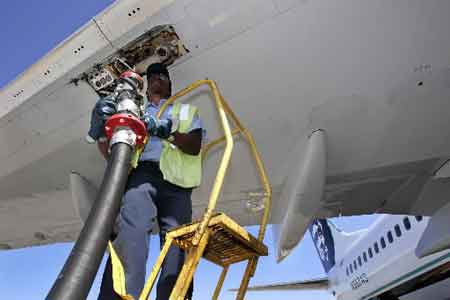
According to the government, the said labour laws with appropriate sanctions and policies have been put in place and are being vigorously enforced to promote social justice and industrial peace between workers and management of various parastatals.
The Permanent Secretary in the Federal Ministry of Labour and Productivity, Dr. Clement Illoh made the disclosure at a three days workshop on ‘Redefining Industrial Relations in the Aviation Industry’, organized by Safecrest Services Limited as parts of a training programme for members of the Air Traffic Services Senior Staff Association of Nigeria (ATSSSAN) at the Administrative Staff College of Nigeria (ASCON) in Badagry.
He described the current industrial relations system in Nigeria as been chaotic, lawless, crisis-ridden and strike prone and said the aviation sector is one sector that has been badly hit by industrial unrest hence the need to redefine industrial relations in the sector.
Illoh said the contribution of the aviation sector to the growth of Nigeria Gross Domestic Product (GDP) is unquantifiable and bemoaned the negative impact on productivity visited on the industry by incessant labour unrest.
However, he urged labour leaders to pursue all necessary avenues and statutory procedures to settle disputes and not allow them to snowball into a situation that deprives the country of revenue.
According to him, the industry has in recent times been anything but peace with challenges ranging from jurisdictional scopes crises and overlapping, voluntarism fraught with different erroneous interpretations, lack of training for labour leaders and poor leadership among trade union executives among others.
Also, the Guest Speaker and Director, Department of Trade Union Services and Industrial Relations in the ministry, Mrs. Comfort Dike said the workshop was organized to foster relationship between trade union leadership, management and government.



